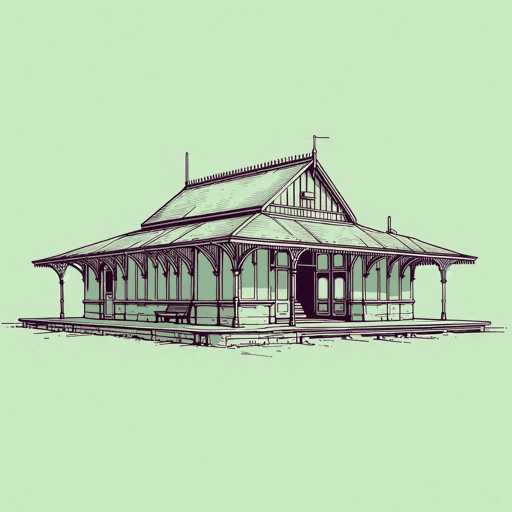61 pages • 2 hours read
Irvine WelshTrainspotting
Fiction | Novel | Adult | Published in 1993A modern alternative to SparkNotes and CliffsNotes, SuperSummary offers high-quality Study Guides with detailed chapter summaries and analysis of major themes, characters, and more.
Summary
Part 1, Chapters 1-3
Part 1, Chapters 4-6
Part 1, Chapters 7-10
Part 2, Chapters 11-13
Part 2, Chapters 14-17
Part 3, Chapters 18-19
Part 3, Chapters 20-21
Part 4, Chapters 22-24
Part 4, Chapters 25-28
Part 5, Chapters 29-31
Part 5, Chapters 32-33
Part 6, Chapters 34-36
Part 6, Chapters 37-39
Part 6, Chapters 40-42
Part 7, Chapter 43
Character Analysis
Themes
Symbols & Motifs
Important Quotes
Essay Topics
Summary and Study Guide
Overview
Trainspotting is Scottish novelist Irvine Welsh’s 1993 work of fiction. Set in the late 1980s, the novel follows the “Skag Boys,” who are involved in Edinburgh, Scotland’s heroin scene, particularly in the neighborhood of Leith. Most of the novel portrays a Scottish English dialect, though some portions are in British English. Separated into seven parts, the 43 chapters are from different character’s perspectives, and some are in third person, making for a disjointed narrative that reflects the wild and disorganized life of a junky. The novel acquired a cult following, and Welsh later published a sequel, Porno (2002), and a prequel, Skagboys (2012).
Much of the novel centers around Mark Renton, or “Rent,” a heroin addict who tries on multiple occasions to kick his addiction.
Plot Summary
The novel opens with Mark and Simon “Sick Boy” watching a Jean-Claude van Damme movie. Simon is suffering withdrawal symptoms, so the pair seek out Johnny Swan, their preferred drug dealer. Mark thinks of himself as a “coffin-dodger,” one who will likely die if he continues on this path of addiction.
Mark’s first attempt at quitting heroin doesn’t last long. When he can’t find Johnny, he resorts to another drug dealer, Mike Forrester. Mike gives him an opium suppository that Mark loses in a public restroom after a bout of diarrhea. Mark digs the suppository out of the feces and reinserts it.
Later, at a house party, Mark is with his friends: Simon, the violent Frank Begbie, the junky Danny “Spud,” Stevie, and Tommy. Frank, Tommy, and Stevie don’t do heroin. The next morning, Mark awakens in a woman named Lesley’s apartment to Lesley’s screams. She has just found her daughter, Dawn, dead in her crib of Sudden Infant Death Syndrome. Simon is upset, and Mark realizes Dawn was his daughter. Simon decides to get clean.
Danny and Mark sabotage job interviews so they can continue to collect unemployment. Mark has registered himself under several different addresses and collects unemployment for each. During one interview, Mark reverts to his “posh” English accent associated with higher classes.
Tommy meets with Mark after his girlfriend has dumped him. He asks Mark for his first hit of heroin, and Mark obliges. By the end of the novel, Tommy is a fellow addict dying of AIDS.
Someone catches Danny and Mark stealing books they’ll sell for more heroin. During their court appearances, Danny admits to stealing, while Mark, using his “posh” accent, says he intended to read the books. The court sentences Danny to 10 months in jail, and Mark must only attend rehab. Mark envies Danny, as he’s away from the other Skag Boys.
While attending rehab, Mark learns that his issues likely stem from the death of his disabled, catatonic brother, Davie Renton. Soon after, Mark’s other brother, Billy, dies from an IRA bomb. Mark sleeps with Billy’s heavily pregnant wife and relapses again. He goes to London, where he meets a gay man named Giovanni who left Italy after his wife caught him sleeping with her brother.
The group attends the funeral of a fellow junky, Matty, who died of AIDS. Following the funeral, Mark decides to get clean again while living in London. He visits Leith while clean, and he and Frank encounter an old man, Frank’s father, by the old Leith Central Station. The man asks if they’re trainspotting, though the trains are no longer operational.
Mark visits Johnny Swan, whose leg was amputated after he shot up in his arteries. Mark also visits the dying Tommy. He eventually meets up with Simon, Danny, Frank, and another friend called “Second Prize,” and they sell heroin for £16,000. The others go to celebrate, and Mark, who has relapsed, steals the money for a new life in Amsterdam. He knows he can never return, or Frank will kill him.
Critics consider the novel a dark comedy, as it colors horrifying events with moments of comedy. It deals with themes of misogyny, innocent victims of addiction, and social class in relation to addiction. “Trainspotting” at a derelict train station symbolizes the meaninglessness of a drug addict’s life, introducing themes of existential nihilism.

